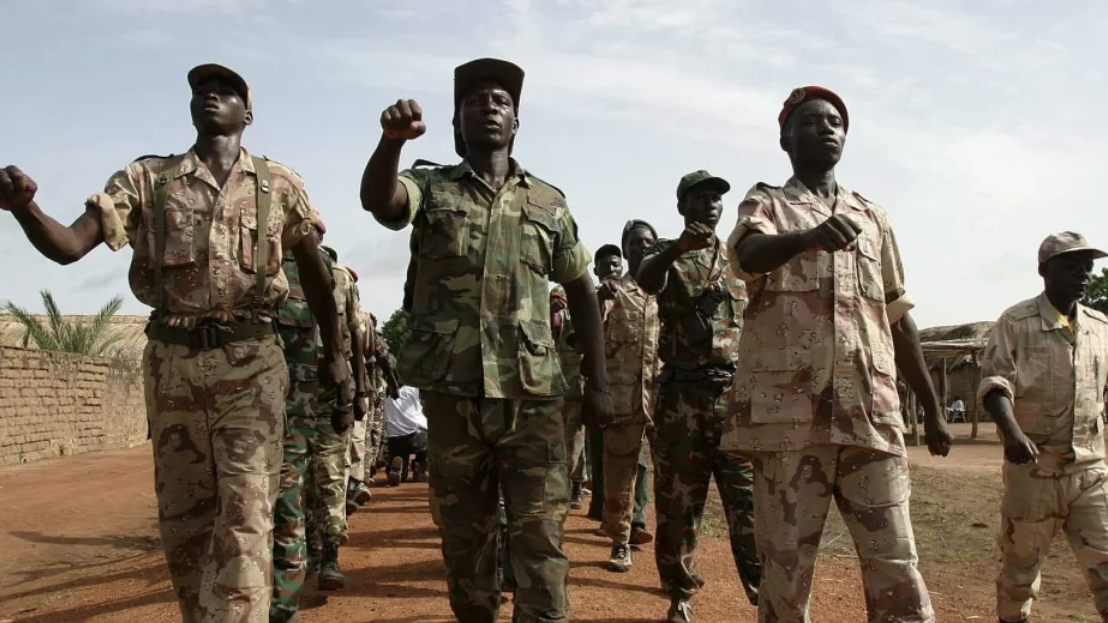
Trump puts on a show in Washington, Netanyahu maneuvers in the shadows
While Donald Trump jostles beneath the gilded White House with five handpicked African presidents, another actor, much more discreet but just as determined, is entering the room. Benjamin Netanyahu, the Israeli Prime Minister, is conducting a charm offensive behind closed doors. His goal? To accelerate, at all costs, the normalization of relations between Israel and several African capitals, in a war for influence that is being played out far from the spotlight.
Washington, Tuesday, July 9, 2025. The scene is polished. Donald Trump is beaming, true to form, welcoming with great pomp the presidents of Mauritania, Gabon, Guinea-Bissau, Liberia, and Senegal. The atmosphere is good-natured, almost folkloric at times. Trump, never short of anecdotes, jokes about his Liberian counterpart's English, smiles, shakes hands, and distributes his famous promises of "America First," Africa version. Officially, he is there to redraw the contours of development aid: no more non-refundable assistance, make way for "win-win" commercial partnerships.
Behind the laughter and the flashes, a much harsher truth emerges: by drastically reducing aid through the elimination of the powerful USAID, Trump is redefining the rules of the game. No more humanitarian aid. We're talking mines, lithium, cobalt, gold, manganese. We're talking American interests. We're talking pure geopolitics. This summit, under the guise of development, looks more like a strategic offensive to wrest the continent from the clutches of Russia and China.
But while Trump shines, Netanyahu maneuvers. Far from the press room, far from the speeches, the head of the Israeli government has discreetly set down his suitcases nearby. No public announcement. No red carpet. Just targeted meetings, silent, but heavy with meaning. The man did not come empty-handed: promises of security cooperation, access to Israeli technology, and above all, the promise of a return to diplomatic normalization.
Among its targets is Mauritania. Negotiations, brokered by the United States, are well advanced. President Ghazouani, one of the summit's guests, reportedly met with Netanyahu behind closed doors, according to several specialized media outlets. This isn't the first time the two men have spoken. For several months, behind-the-scenes discussions have discussed the reopening of embassies, the signing of trade agreements, and enhanced military cooperation. Mauritania broke with Israel in 2010, but the tide has turned.
And that's not all. According to several sources, Tel Aviv has made numerous "discreet approaches" to other African capitals present in Washington. The goal: to weave a web, to break down one by one the obstacles that still hinder Israel's integration into the African diplomatic landscape. For Netanyahu, each African recognition is a nail in the coffin of the international boycott. He's playing on several fronts: security against jihadist threats in the Sahel, Israeli technological expertise, and indirect but very real support from the United States.
The offers are tempting: surveillance equipment, drones, cybersecurity, agricultural partnerships. In return, Israel expects strong political gestures. An official handshake. An embassy. A public statement. The timetable doesn't matter; the key is to gain ground.
All of this is taking place under the benevolent blessing of Trump, who sees this rapprochement as a double gain: strengthening his image as a peacemaker (with a second Nobel Prize in his sights) and asserting the supremacy of his United States-Israel axis in the face of Russo-Chinese ambitions on the continent.
But all this raises a troubling question: Is Africa still in control of its choices, or is it becoming a secondary theater in a grand diplomatic drama in which it is merely the backdrop? Between secret deals, security promises, mineral resources, and international recognition, this summit in Washington resembles a well-oiled play where each actor plays a carefully scripted role.
And deep down, perhaps that's where the real scoop lies. Not in the pompous speeches, not in the handshakes, but in the corridors. In these camera-free exchanges, where Africa, Israel, and the United States weave a parallel, secret, and potentially explosive diplomacy. A diplomacy where people are rarely consulted, and where interests always trump convictions.



Leave a comment
This site is protected by hCaptcha and the hCaptcha Privacy Policy and Terms of Service apply.